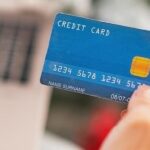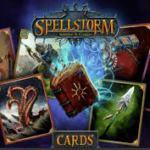18 tips to avoid credit card fraud for dummies
Credit card fraud is a wide term used for deception, fraud and theft committed using a credit card or through similar payment methods. The purpose of this fraud is to obtain goods without payment or to draw unauthorized funds from an account. Fraud is only possible when the information of a credit card is stolen and it can reach billions of dollars. A large number of hackers and trackers remain in search of credit card information. It has become essential to protect your credit card with the introduction of online shopping facilities. It is the responsibility of credit card holders to safeguard their credit cards. Following steps can help a person in protecting his or her credit card from hackers.
- Your credit card is not less than your cash so treat it like cash. Sometimes it is even more precious.
- Don’t write your credit card information especially the credit card secret pin on papers or unsafe places. Always keep it confidential because a little mistake can cause problem.
- Discard your old cards when they expire and sign up new ones as soon as you receive them.
- Use permanent ink to sign your credit card immediately after receiving. This is a no excuse step you must carry out.
- You should make each transaction in your presence whatever you purchase something. After purchase when the cashier returns your card check it whether it is yours or not. Your card should not be tampered in any way because such treatment can bring harmful results for you.
- Check individual and total amounts on your charge slip before signing in because any blank space is an open invitation to add additional amounts in your slip.
- You should check receipts against your statement regularly. If a monthly statement is missing then inform your creditor about it.
- If you find unfamiliar transactions on your statement then inform your credit card issuer immediately.
- You should place your receipts and statements at secure place because they contain sensitive information which can be used for fraud or theft.
- Whenever you go to foreign tours inform your creditor to monitor your transactions carefully.
- In case of address change inform your creditor that your statements and new cards should not be sent on your old address.
- If your card is stolen or lost inform your creditor immediately. Be in contact with the credit card issuer authority and don’t provide complete details of your credit card in telephonic calls to creditor or people whom you buy products.
- Your card should be personal and nobody should be able to use it on your behalf.
- Do not write your personal identification number (PIN) on your credit card.
- Draw a line on lines above the total amount and discard canceled receipts. You should not sign on blank charge slip because it can lead you toward credit card fraud.
- Try to generate one time use virtual credit card number in the process of buying from online stores.
- Never give away credit card information to websites which do not have SSL security in place.
- Unsolicited emails can be deceiving. Take care not to let out sensitive information.
It is not very difficult to hack a credit card because people commit mistakes which enable hackers to get their credit card information. Credit card holders should use their credit cards carefully and at secure sites to avoid frauds. Your regular checking and monitoring is necessary to avoid future troubles.








